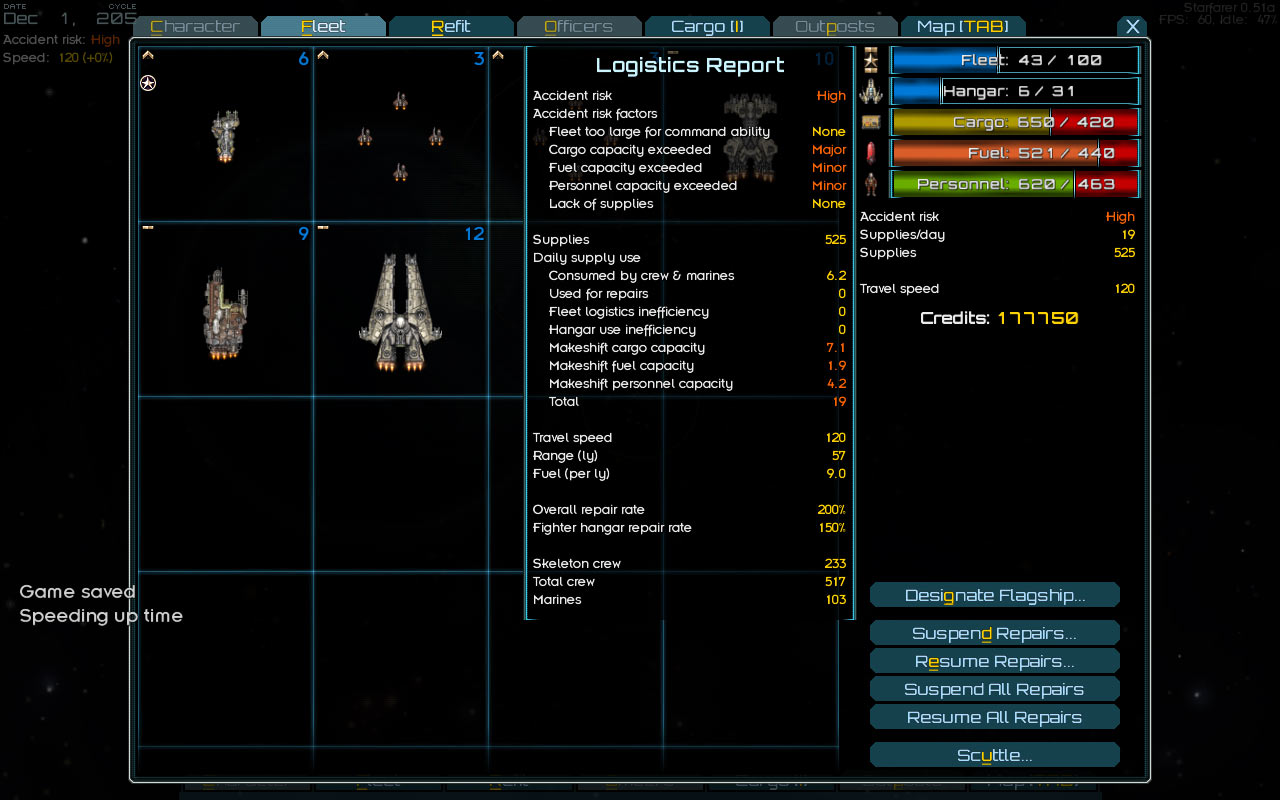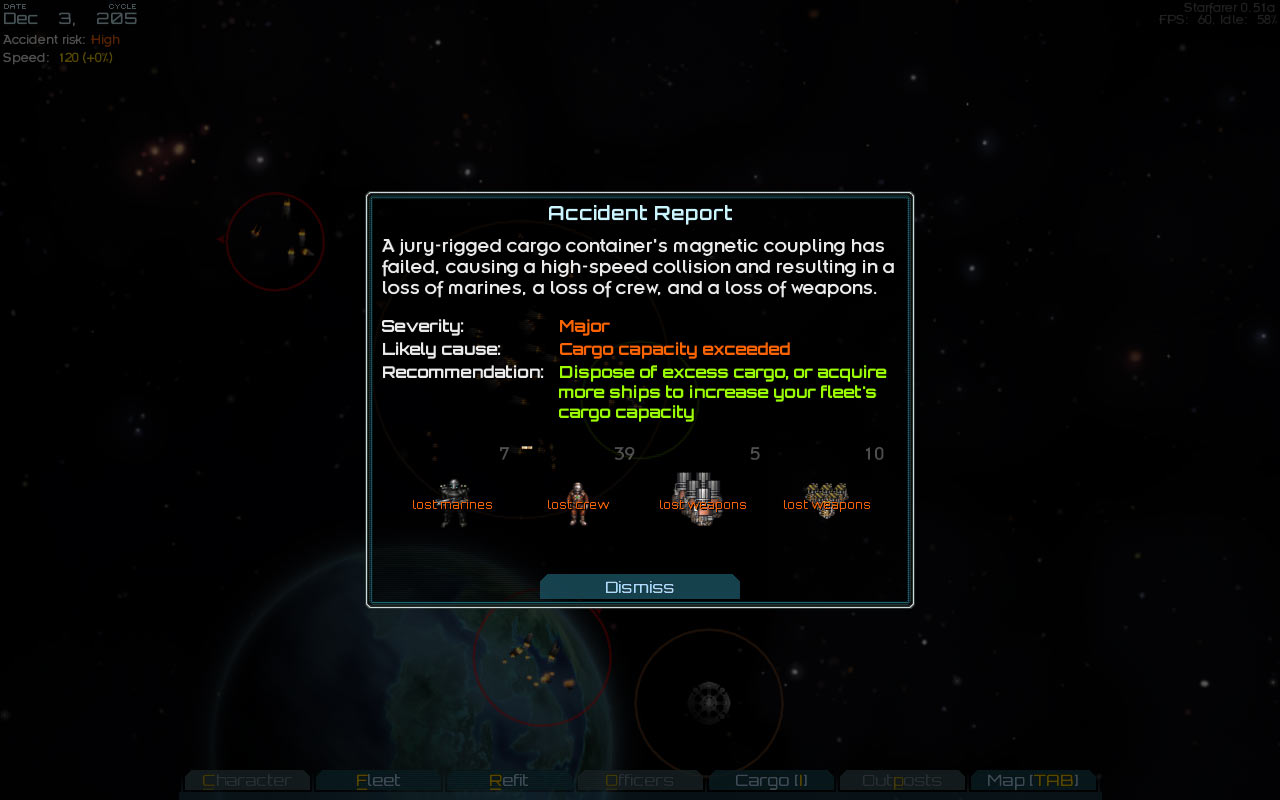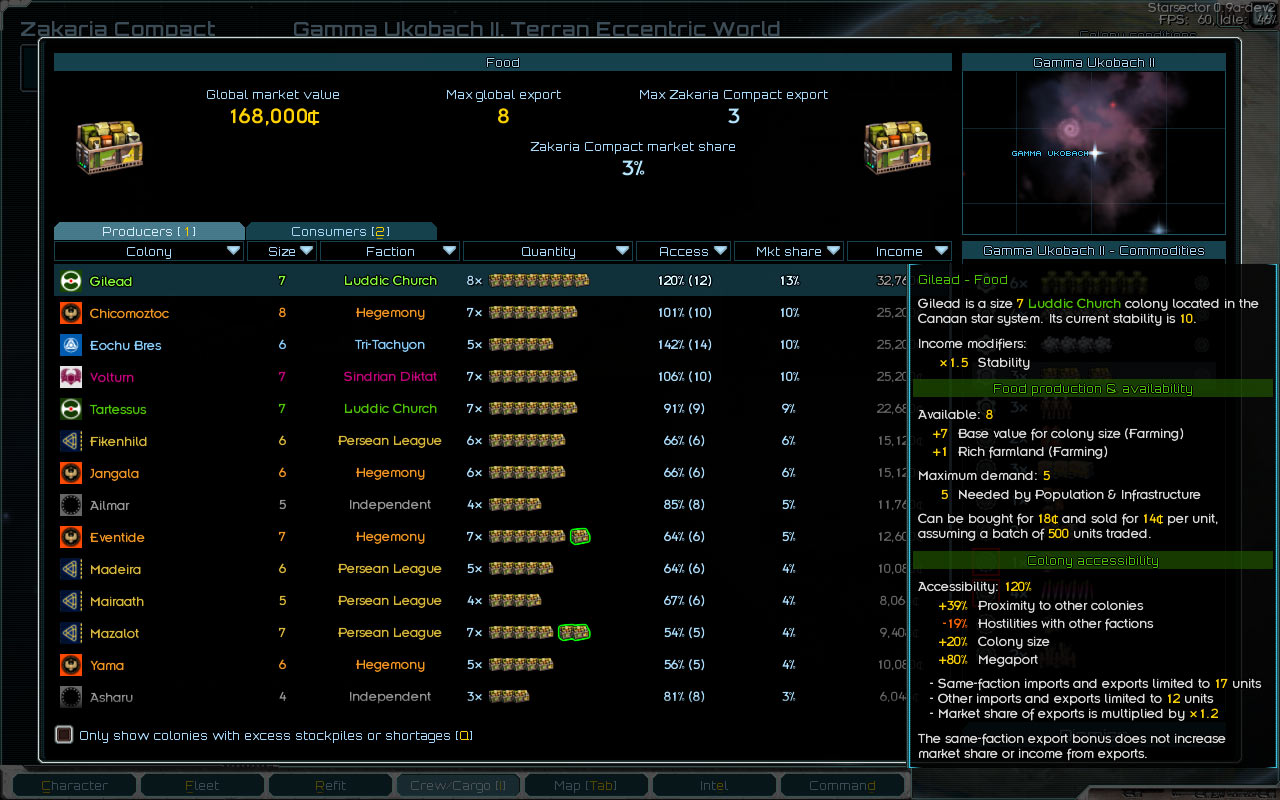If you’ve been playing Starfarer, you know that there’s no penalty to being over capacity in any of the various stats such as fuel or cargo space. Clearly, that has to change at some point.
The question is, how to keep the player within the set limits?
A straightforward approach would be to treat the limits as hard limits, and disallow the player from being over them at any time. For a straightforward approach, though, it’s not actually very straightforward. Let’s say there’s a cargo limit, and the player loses a ship. What happens now that their cargo is over the limit? Remember, cargo isn’t assigned to a specific ship, but handled as a total fleet-wide capacity. We could automatically dump some cargo at random – but that really hurts (bye-bye <important item>, which there’s no way to safeguard). We could add new mechanics to assign certain items to certain ships – but now we’re adding even more mechanics to make the new mechanics we’re adding “work”, and that’s not a good sign.
We could instead present the player with a choice of what to get rid of any time they’re over capacity. The trouble is, that could be awfully harsh too. Suppose they’ve got a few ships that are just barely within their fleet points limit. Then they lose an officer that was providing a fleet points bonus – and now must choose which ship to get rid of, too. It’s also awkward to keep presenting the player with dialogs that demand attention and can’t simply be dismissed.
Besides, it would make sense that you could go over limits. An external cargo container attached to the hull with a magnetic grapple. A jury-rigged containment field to convert a cargo hold into a fuel cell. An improvised life support system to increase the personnel capacity of a ship. All these sound like they’d require some supplies to put together and maintain, but well within the capabilities of a well-trained crew. Even so, these probably wouldn’t be very reliable, would they?
Makeshift Capacity & Accidents
There are five limits each fleet needs to stay within:
- Cargo
- Fuel
- Personnel (crew and marines, combined)
- Fleet points (each ship uses some)
- Hangar space (provided by ships, used by fighters)
You can go up to 50% over each limit without any penalty, except for an additional supply cost – to build improvised containers, account for unexpected logistical requirements, perform emergency maintenance on all the jury-rigged systems, and other such.
 The revised fleet information display, with a tooltip containing a detailed logistics report
The revised fleet information display, with a tooltip containing a detailed logistics report
That’s a lot of information on the tooltip, isn’t it? What really matters is the simplified panel on the right, though – all you need to worry about is keeping the accident risk down, and making sure you’ve got enough supplies to maintain the extra capacity. The tooltip is there if you’re interested in understanding exactly what’s going on, but it’s not something you need to look at often.
Now, on to accidents – if you run out of supplies, or go more than 50% over any capacity, you run the risk of having a serious problem.
 As best I can tell, a cargo crate containing weapons slammed into an improvised habitat. Ouch.
As best I can tell, a cargo crate containing weapons slammed into an improvised habitat. Ouch.
The consequences of an accident depend on its cause, but will always aim to bring your fleet closer to its limits. For example, a personnel-related accident will cause a loss of crew and marines – though it may also cause some collateral damage to cargo or fuel, especially if those are over capacity as well.
The consequences can be very harsh – up to the total loss of a ship – but accidents are also something you shouldn’t be seeing on a regular basis. They’re there for when you’ve made a mistake (didn’t carry enough supplies to support your fleet, say), or for when you’ve made a gamble and lost (can I tow this extra loot to the station to sell?).
Of course, this applies to AI-controlled fleets as well – so later on, you’ll be able to inflict grievous losses on the enemy simply by disrupting their supply chain. Freighters also become much more important – a particularly large fleet needs lots of supplies to stay in the field – and to haul off all the salvaged goods.


























